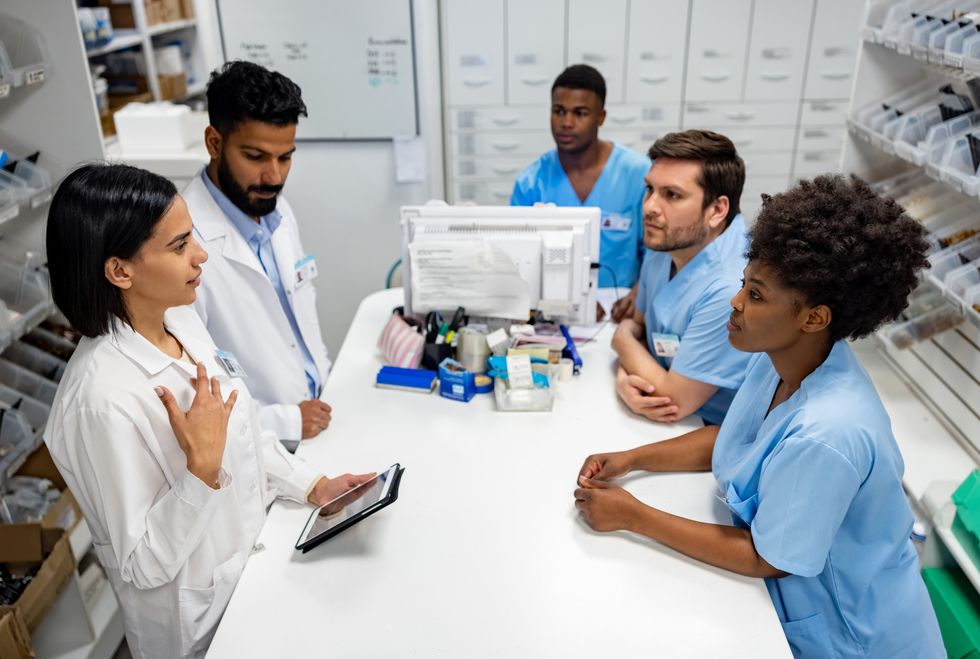By Mike Holden,
The what
In March 2025 the members of the Royal Pharmaceutical Society (RPS) where asked to vote on a special resolution to change their existing Royal Charter and become a Royal College.
Just over 31 per cent (6,144) of the total membership (19,594 with MRPharmS and FRPharmS) voted. Of those, 71 per cent (4,369) voted in favour, sufficient to carry the vote for change and mandate the RPS to begin the process of transition. The plan is to complete the transition by the spring of 2026.
Given that turnout for board elections was normally around 10 per cent, this is an improvement, but still only a small proportion of the 64,393 pharmacists that were on the GPhC register in 2024.
The fact that only 30 per cent of pharmacists currently choose to be a member probably reflects on the divergent nature of the profession and historical issues relating to engagement, leadership, governance and transparency plus a lack of understanding of the purpose of a professional body.
The wide range of areas of practise that pharmacists work in means that specialist professional groups have formed over the years that some would see as adding value as their leadership and representative body or even union.
Competition in whatever guise should sharpen the offer but the value proposition from the RPS has been somewhat lacking in some eyes. We should log that individual pharmacists have a responsibility and should have the opportunity to make a professional body work for them - engagement is a two-way street.
Some have said that non-RPS members of the profession should have been allowed to vote. Some also said that the 26,067 registered Pharmacy Technicians should have been allowed to vote but neither could as they are not members of the RPS.
However, all pharmacists have the choice to be RPS members and some, for a variety of reasons, choose not to. All members had the opportunity to vote, but some chose not to. This is democracy.
The use of the word ‘Pharmacy’ in the title of the Royal College is one that indicates potential inclusivity for all pharmacy professions so this may be a way forward once established.
Following an 18-month long internal process and Assembly approval, the RPS laid out their ambitions and commitments relating to the proposed transition to a Royal College in September 2024.
The full Royal Charter proposal had to gain informal approval by the Privy Council, the Charity Commission and The Scottish Charity Regulator (OSCR) and hence the delay in releasing to members. This gave just three months for members to consider the full proposal and involved a series of roadshows and webinars to engage them in the planned changes to the charter. A tight timeline criticised by some, but doable by others.
The why
The RPS President, Professor Claire Anderson, is quoted as saying:
“The proposed Charter changes will help RPS forge the collaborative leadership body that pharmacy deserves, and becoming a Royal College will create greater recognition for pharmacy with the public, policymakers and other healthcare professionals”
The commitments are that as a Royal College we will see:
- Greater recognition for pharmacy and the scope of its impact with policymakers, the public, other professionals and their bodies
- Collaboration to shape the future of pharmacy though research, advocacy and thought leadership
- The advancement of pharmacists to provide excellence in patient care
- Support for workforce transformation through professional support, learning, development, credentialling, inclusion and diversity
- Patients put first through safety and the provision of pharmaceutical and clinical care
- Transform member experience and value
So why change when some of the historical membership and governance issues could and should have been fixed as the RPS?
Certainly the status quo was not an option and, in my opinion, it’s sometimes better to start again rather than fix what we have. You cannot make an omelette without breaking eggs.
Some have questioned why put patients before pharmacy? I would suggest that patient care is what pharmacy does and they should always be the priority. However, that requires us to develop our knowledge skills, evidence base and relationships with others. A high performing professional leadership body is necessary to help us do that. The fact that this was not already fully in place is why the UK Chief Pharmaceutical Officers established the Pharmacy Professional Leadership Advisory Board. This was to create closer collaboration between pharmacy professional leadership bodies and specialist professional groups and thus enable and support pharmacy professionals to meet the opportunities and challenges ahead.

It’s good to hear that there is a commitment to maintain relationships and support for the excellent independent charity Pharmacist Support.
The requirements of becoming a Royal College will certainly tighten up the purpose, leadership, management and governance of the resultant organisation. It will foster stronger collaboration, enhance professional development, and unite the profession under a shared and common vision.
The how
The transformation into a Royal College requires structural change to bring it in line with other Royal Colleges and enables efficient and effective operations within clear governance requirements. There will undoubtedly need to be a cultural shift as well.
There have been some concerns expressed that the Royal College may not be led by the profession; however, the majority of roles will be elected from the membership.
It will need to become a registered charity with a Trustee board, no small step with the associated financial and corporate governance requirements.
The Trustee board will have legal responsibility and sign off strategy. This will start with nine members made up of five elected members from the Senate (replaces the current Assembly), a chair and other appointments with expertise in organisational and financial management.
As a charity, it will have regulatory oversight from the Charity Commission and the OSCR.
The Senate will have responsibility for professional leadership. This will have a president elected by the national boards, six National Board members (two for each of England, Scotland and Wales), four more flexible positions (e.g., for a pharmaceutical scientist and/or educationalist) and a new position for a student or foundation pharmacist.
There will still be country boards to reflect the nature of devolved healthcare. The publishing activity will fall under a wholly owned limited subsidiary.
The RPS now need to focus on progressing the necessary steps with the Privy Council, Charity Commission, and the OSCR.
Given history, some question the leadership and capability of the organisation to deliver the desired outcome which is respected by the pharmacy professions and beyond. However, there are some excellent people working hard in the operational team to support members. They must keep members and non-members fully informed and engaged in the process.
A Royal College of Pharmacy must grow its membership to be truly representative and create a new era and opportunity for pharmacy.


















